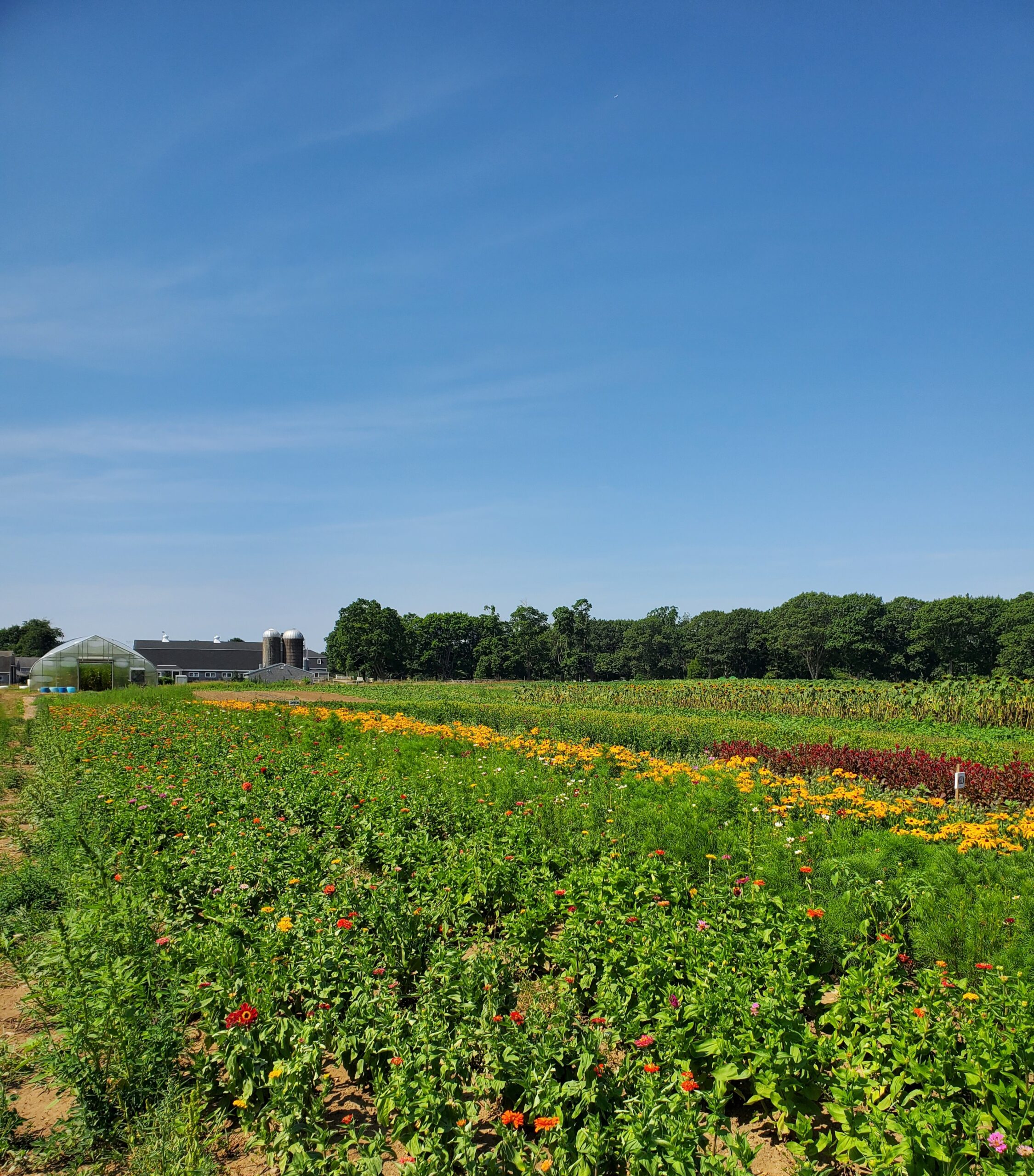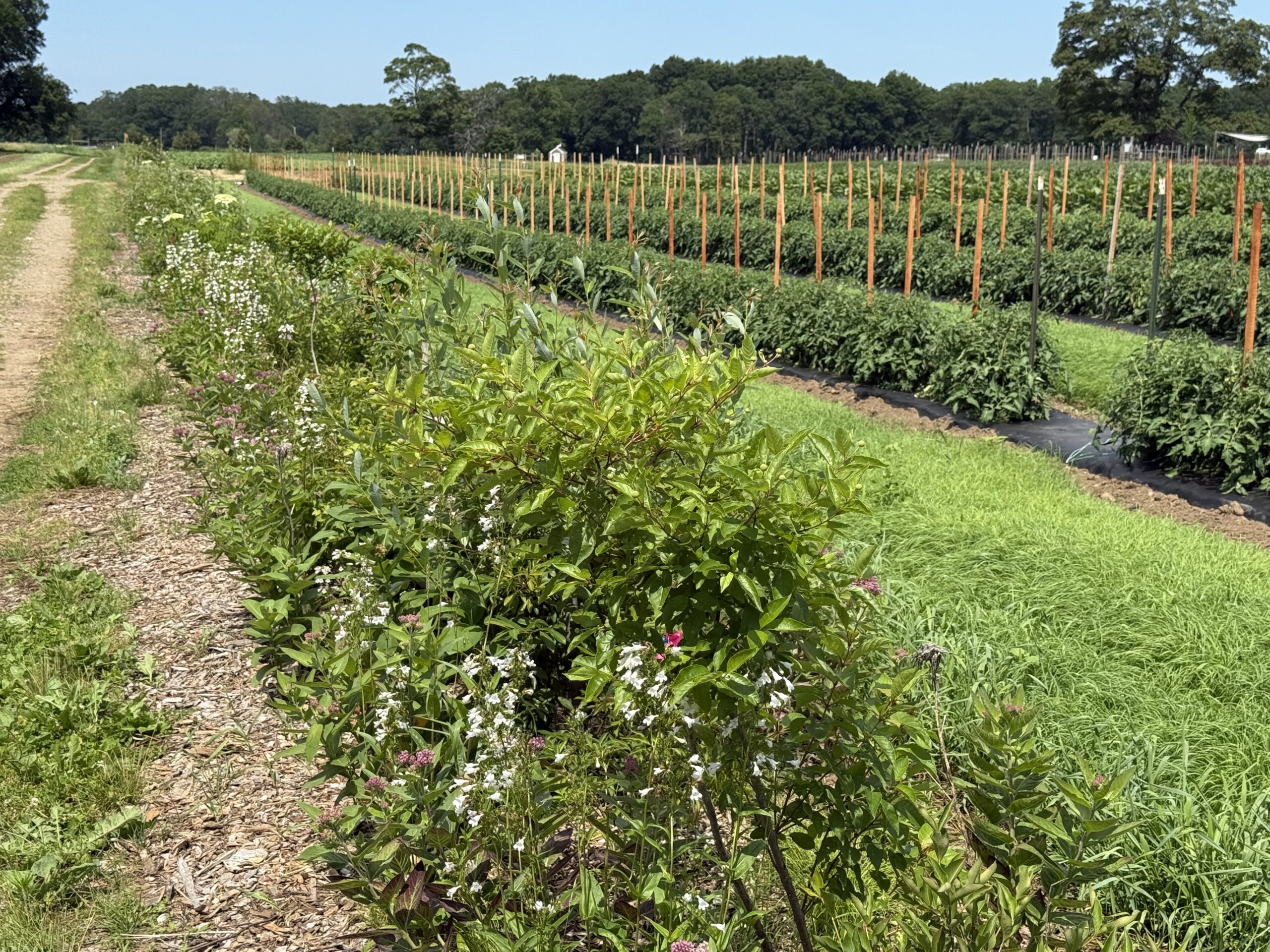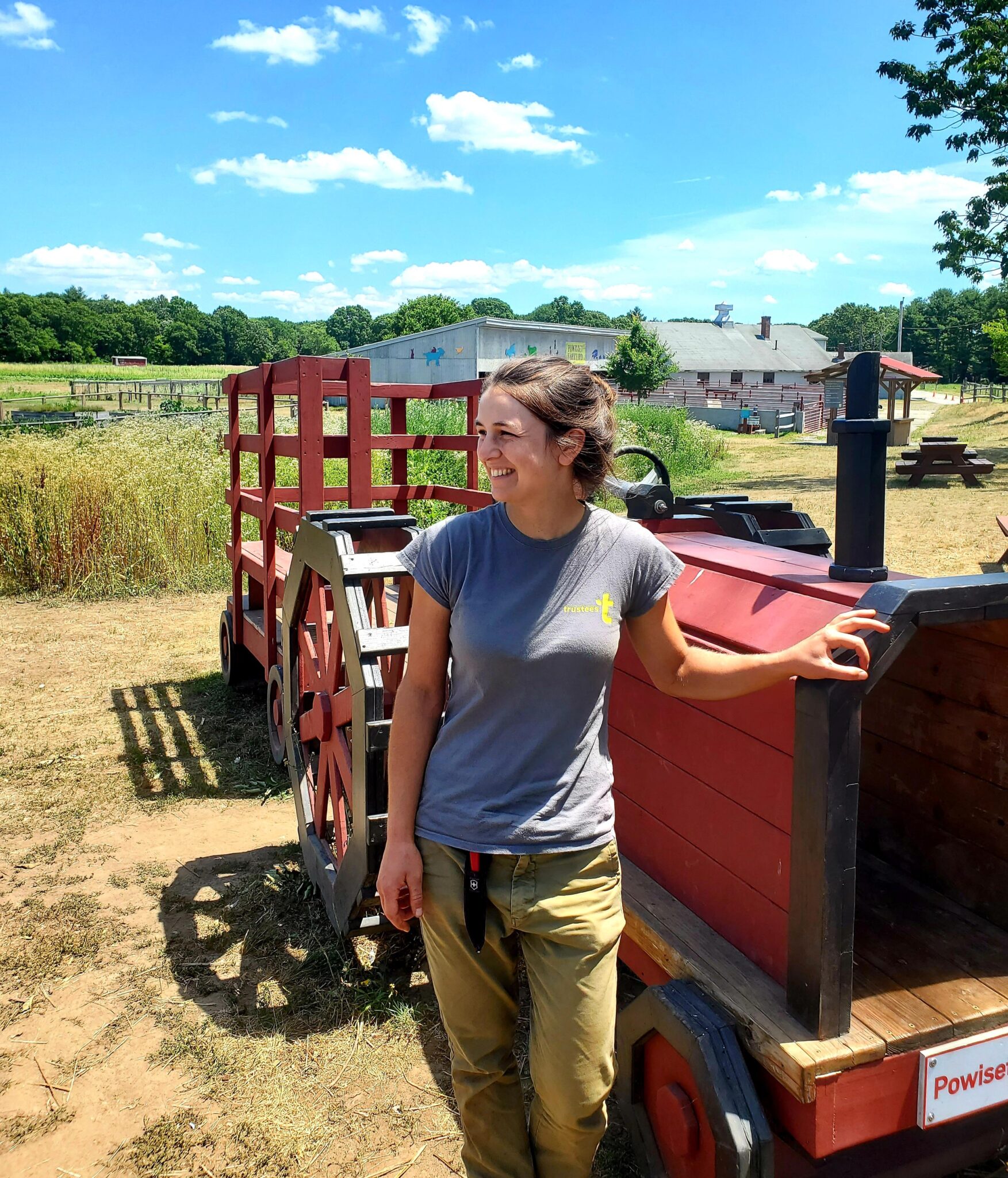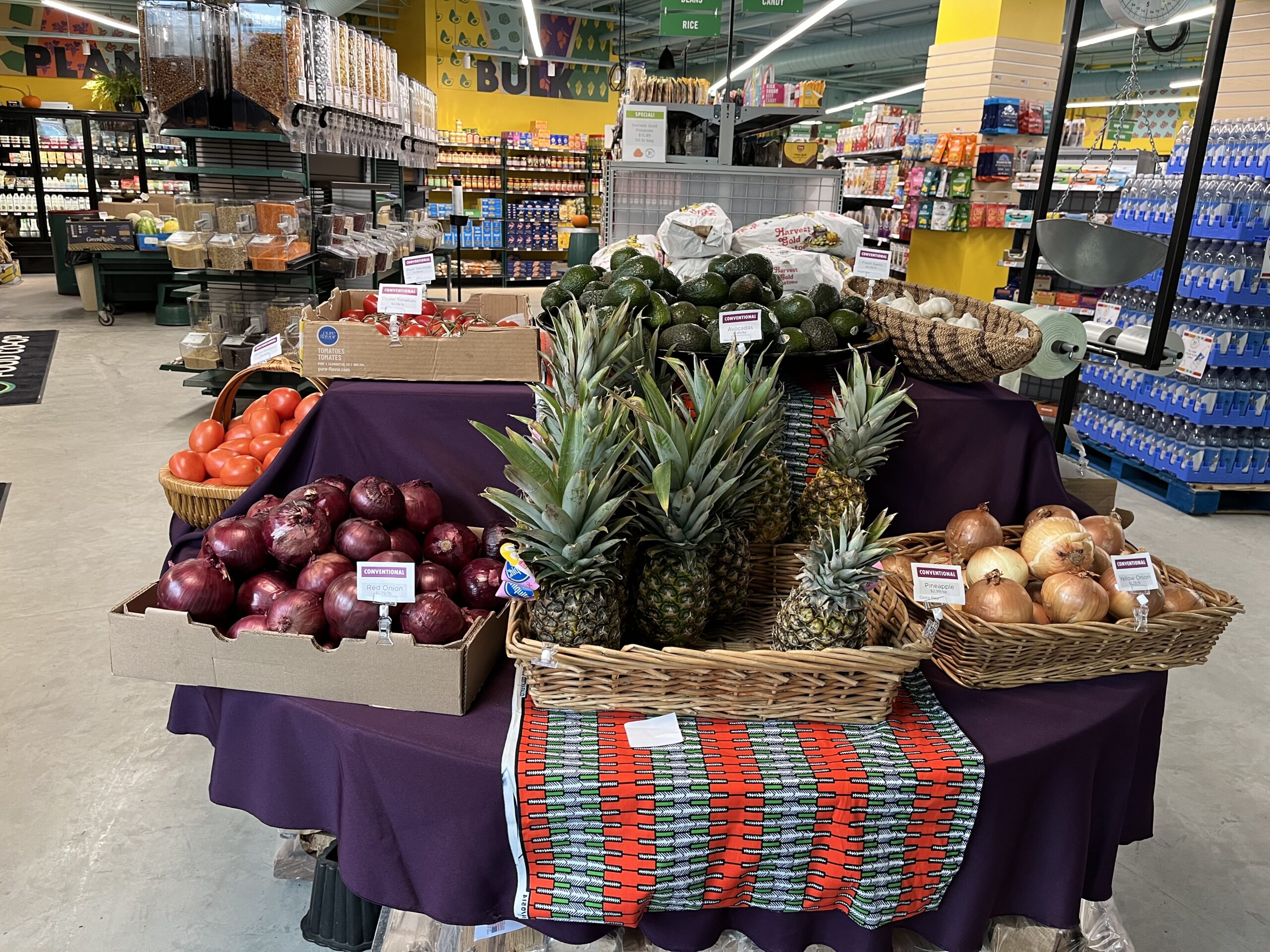
Farmers across the globe are at the forefront of climate change, managing impacts on the land and within agricultural systems. It is careful land managers, such as our Trustees farmers, who have been closely observing accelerating changes in precipitation, temperature, pest pressure, and invasive species over the past several years. Just this season, we have seen further evidence of the flash droughts and heavy precipitation events predicted to be part of a New England future with a changed climate.
Agriculture is often cast as one of the “villains” in the climate change narrative. However, regenerative farming flips that narrative by restoring ecologies, building soil, improving water quality, and increasing carbon sequestration. Unlike intensive industrial agriculture which relies on chemical inputs and heavy machinery to support a single crop, regenerative agriculture is a holistic approach to farming that leverages the power of photosynthesis to close the carbon cycle, building soil and natural crop resilience. These practices strengthen our agricultural resources for future generations.
This all means that our farmers are thinking critically about tillage. Tillage is an important tool in organic farming systems where we do not use chemical herbicides and pesticides. Yet, every pass with a tractor has greenhouse gas implications, while soil disturbance negatively impacts overall soil health. We are working to incorporate new reduced tillage technologies to further promote biological activity, enhance soil aggregation, and increase water holding capacity and infiltration, which will preserve soil structure, resist erosion, and better maintain plant residue and enhance nutrient retention. We are also working on improving soil fertility using livestock nutrient cycling, cover cropping, crop rotation, and maintaining adequate soil pH. Balanced soil fertility helps to restore the soil microbiome, which results in a noticeably more resilient agroecosystem. Trustees farmers are also focusing on biodiversity across crop fields and pastures through intercropping, utilizing multispecies cover crops, managing for vegetative diversity in pastures, preserving hedgerows, and building pollinator strips into crop fields and grazing field edges.
Finally, careful rotational grazing is a critical soil building tool effective in countering climate change. Permanent grasslands have some of the best soil structure and organic matter levels because of the grazing cycle, which encourages diverse pasture plant productivity and corresponding root biomass, as well as increased nutrient cycling. Proper grazing management makes our farmland more drought resistant and improves resilience in heavy precipitation events, by increasing the water holding capacity of our soils and contributing to good soil structure. Our grazing livestock keep fields open and preserve important native species habitat while increasing the sequestration of carbon in our soils.
Massachusetts’ ability to sustain its farms, preserve farmland, and build a climate resilient food system for the future is a monumental challenge spanning many scales and disciplines. The Trustees are uniquely positioned to address some of the most pressing of these challenges by defining emerging best production practices in a changing climate, managing agricultural land as a natural climate solution, and providing secure land access for farmers across the state to engage in these best practices.



